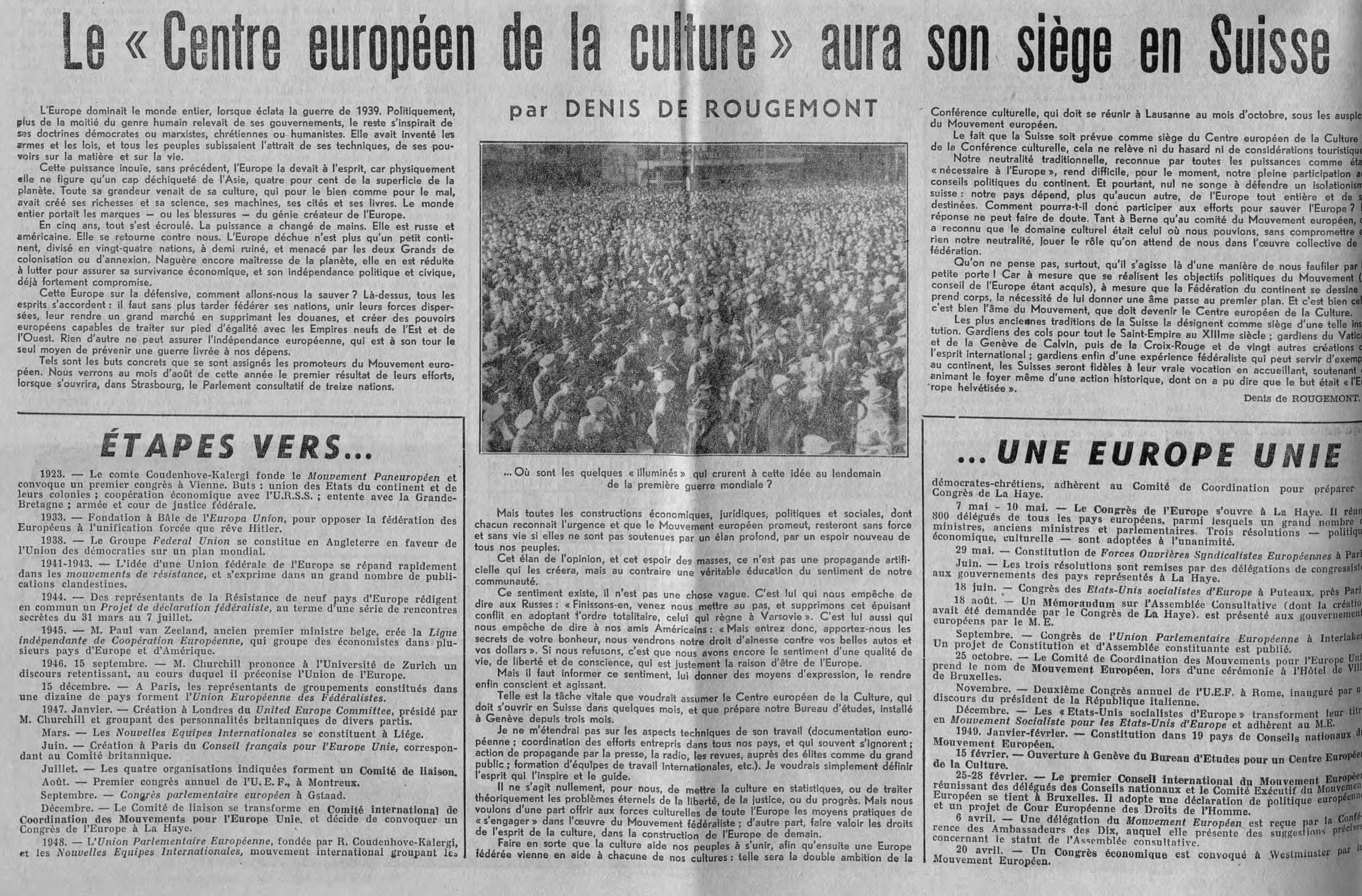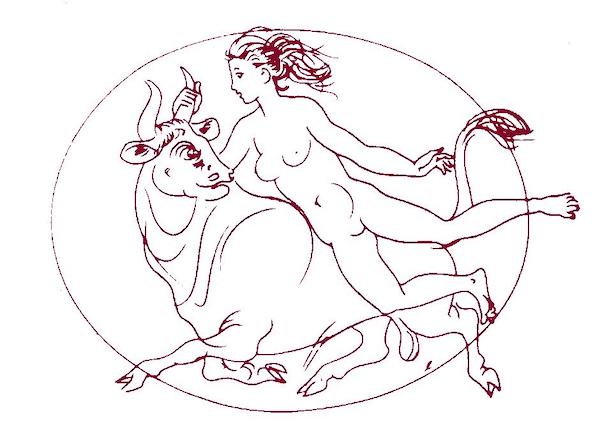The European Cultural Centre was founded by Denis de Rougemont in Geneva on 7 October 1950 in application of the Cultural Resolution of The Hague Congress of 1948.
The European Centre for Culture aims to :
Why Geneva?
➜ When it comes to culture, Europe does not stop at the borders of the European Union.
➜ Geneva lies at the heart of Europe and is home to numerous international organisations.
➜ Geneva has played a historic role in the emergence of the European spirit.
➜ The Swiss experience of federalism is a source of inspiration for the democratic construction of Europe.

“Le Centre européen de la culture aura son siège en Suisse”, Curieux, Neuchâtel, no. 27, 7 July 1949, p. 6.
In May 1965, Denis de Rougemont answered Carrefour’s questions about the European Cultural Centre and the new Institute for European Studies in Geneva (RTS).
Statutes of the European Cultural Centre in French
The role of the European Cultural Centre in French
